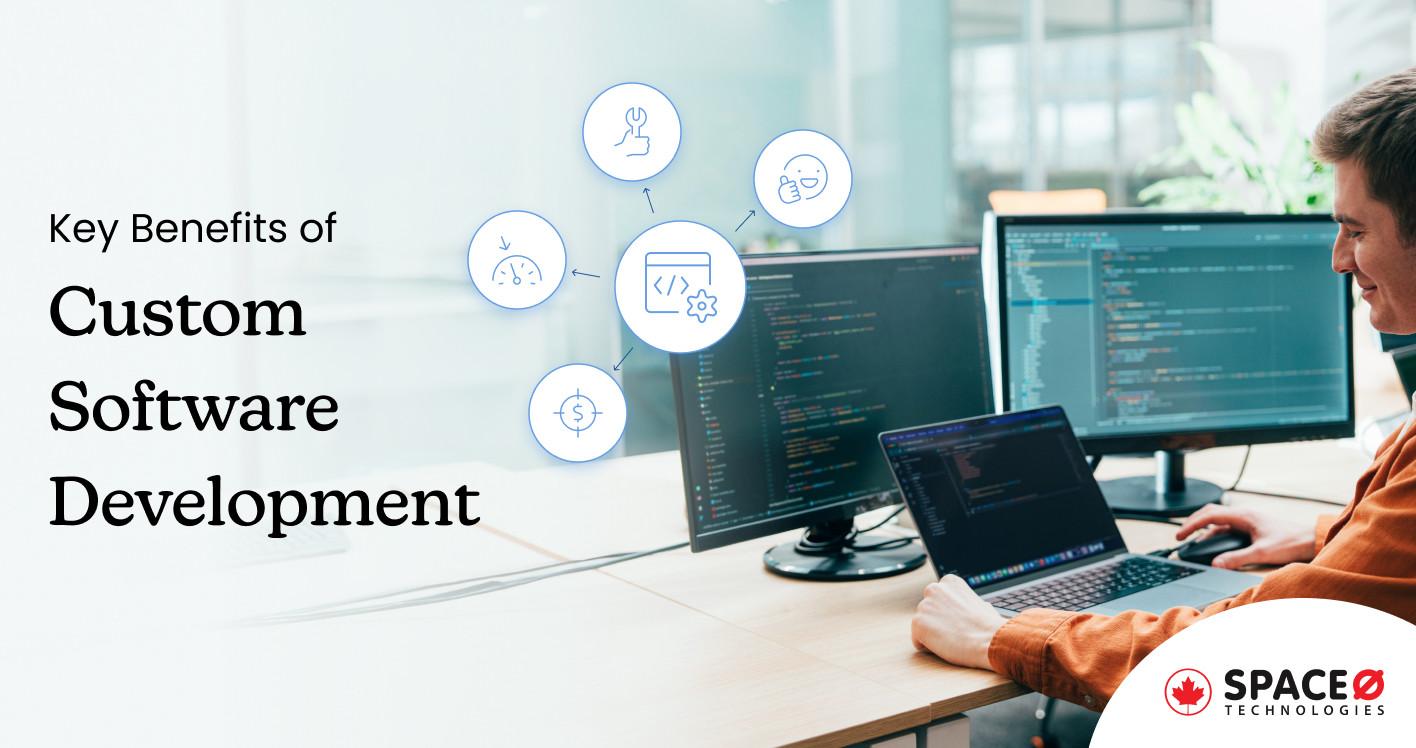
Flutter vs Native: Which Technology to Choose for Your App in 2025?
Key Takeaways:
If you are not sure which technology to choose between Flutter vs Native quickly, here are the 3 core key takeaways to help you:
- Flutter is a cross-platform technology that allows you to use the same codebase for both Android and iOS, while native development requires separate codebases for each platform.
- If you want to build a high-performance app with access to specific platform-specific features, native development is preferable. Whereas, if you want to build a cross-platform app with a simpler user interface and a fast time-to-market, Flutter is usually preferred.
- Applications like Netflix, Skype, Uber, and Spotify are built using native technologies. While apps like Google Pay, Tencent, and Alibaba are developed using the Flutter framework.
Being an entrepreneur if you are looking for mobile app development, then it might be confusing or hard for you to choose between native and cross-platform.
Especially in the scenario where new mobile app development technologies like Flutter or React Native are competing with native mobile app development.
In fact, according to StackOverflow Trends, Flutter is continuously in trend, and developers on StackOverflow are discussing it and showing their interest in using it.
Flutter and native app development are totally different in terms of development cost, timeline, code maintenance, performance, and testing.
Let’s get an in-depth idea about Flutter vs Native app development.
Table of Contents
Comparison Between Flutter vs Native Technologies
Based on several factors, we have made a comparison table. This table will clear your doubts about both the technologies and help you to choose the right one. Read on to find more information.
| Factors | Flutter | Native |
|---|---|---|
| Development Speed | The Flutter approach allows developers to write code once and run it everywhere. With this, the development time required in Flutter to develop two mobile apps is less. Additionally, Flutter code is easier to understand so new developers don’t need to put much effort into understanding the production code. | With native technologies, the time required to make apps for two different platforms is more compared to a cross-platform framework. Because the development of native apps depends on the use of core programming language, UX/UI, and compatibility of the device’s functionalities. |
| Architecture | Flutter has extensible layered architecture. The mobile app development architecture of Flutter is divided into three core layers, i.e., Framework, Engine, and Embedder. All these three layers have their underlying libraries. Embedder works with the operating system to follow the code instructions. Flutter engine is built in C++ and interacts with Flutter code for further processing with the machine. | Native apps architecture is also divided into three layers. But, these layers are different. The names of the layers are – Presentation, Business Logic, and Data layer. These layers allow developers to make apps according to requirements, and developers can focus on each layer. |
| Performance | While comparing apps built with other cross-platform frameworks, Flutter apps have better CPU performance results. The reason is Flutter framework doesn’t have any code representation interpreter or called interpretation. Flutter app is created directly with machine code. So, Flutter mobile apps would be constant to perform at 60 fps or 120 fps on devices capable of 120Hz. | The native apps have very fast performance because the code is done with core native languages built for a specific platform. Native apps make the most efficient use of memory consumption and perform well. |
| Availability of Developers | As the Flutter technology is new, most developers are not much familiar with it. And hiring skilled Flutter developers becomes difficult. While hiring talented Flutter developers, you might face challenges like higher charges per hour or lack of community support. | Over 35.5% of global software developers use Java and 5.1% of global developers use Swift. When you want to develop a native app, you don’t need to think about resources. There are enough talented developers available in the market to develop your app as per your needs. |
| Costs | Cross-platform mobile apps cost less as compared to native apps. Because in cross-platform, you can save around 30-40%. The cost to build native apps with Flutter starts from $15,000. | The costs of native mobile app development are higher compared to cross-platform. The reason is developers need to build the same application for two different platforms and it doubles their efforts and takes more time to complete the project identically for both platforms. |
| Code Maintenance | Flutter apps are based on a single codebase so developers don’t need to invest much time to maintain the apps. The single codebase helps developers easily to find out bugs, errors, and update them quickly. On top of that, the Hot reload feature of Flutter helps developers to code faster and resolve issues much quicker in real-time. | In native app development, developers require more effort to maintain two codebases for the application. Secondly, app developers need to maintain the native code of two different platforms. |
| Application Size | In Flutter, Virtual Machine of Dart and C++ mainly decides the size of the mobile app. Flutter app has a minimum size of around 15-20 MB, which has around 4-5 screens. So, the basic Flutter apps are larger compared to native Android apps. | While in native apps, there are Android apps available on Google Play Store that start from 5 – 10 MB. Some examples of Android applications are ColorNote, SecureVPN, and K-9 Mail. Moreover, as per the SweetPricing – price testing & analytics platform, the average size of native iOS apps is around 38 MB. |
It should be clear to you now how Flutter and native technology are different from each other. Both the technologies have their own benefits and limitations. Choosing one technology for your mobile app depends on the business requirements, features, and budget of app development. Let us understand each technology in detail.
What is Flutter?
Flutter is a cross-platform framework that helps you to develop mobile apps for different platforms.
Who did develop the Flutter framework?
Flutter is developed by Google and its current version is 2.5.
Using Flutter on which platforms you can develop applications?
Flutter creates a single codebase app that can work on both platforms iOS and Android OS.
Flutter is a popular framework among developers as it is easy to use and provides fast end results. Flutter framework is made up of Dart programming language. Flutter development brings several advantages that are:
- App development cost-cutting
- Targeting broader audience
- Develop MVP version of your ideas
It helps mobile app developers in Android Studio to create your own mobile application from scratch with extensive and interactive UI to offer native-like performance. Moving further, you should also know scenarios when to pick Flutter and when not. This way, you will get to know why Flutter is the best for app development.
When To Choose vs When Not to Choose Flutter Cross-Platform Framework
| When to Choose Flutter | When Not to Choose Flutter |
|---|---|
|
|
In fact, we have also developed 300+ custom mobile and web solutions being one of the leading Flutter app development company in Canada. In several applications, we have used Flutter.
Want to Hire Flutter or Native App Developers?
We are one of the top app development companies in Canada, get in touch with us to execute your idea into reality with ease.

Let’s check the best apps built with the Flutter framework.
5 Best Apps Built with Flutter
Flutter has become a huge success in just a short snap of time. Many famous companies have adopted Flutter to build their business applications. Check the following list of mobile apps developed using Flutter.
| Logo | App Name | Category | Use Case |
|---|---|---|---|
 | Google Pay | Finance | With Flutter, Google Pay is easy to scale and avoids the problem of managing two different versions of Google Pay on different platforms. |
 | eBay | eCommerce | eBay wanted to create an interactive UI app for both platforms, iOS and Android OS in a time span of a year. That’s why eBay developers choose the Flutter framework. |
 | Tencent | Business | Tencent wanted to have a front-end solution that helps developers to ease development work and increase app parity. |
 | Toyota | Automobile | Toyota wanted to improve the user experience of the drivers and got to know about Flutter and implemented it. |
 | Alibaba Group | Shopping | Alibaba Group company wanted to create a beautiful and interactive UI across the platforms. Therefore, they have opted for the Flutter framework. |
Do you want to build a cross-platform mobile application? Hire our experienced Flutter mobile app developers to launch your application in the market within a short period. To get more information on Flutter, you can check out the following resources.
What are Native Technologies?
Native application development refers to app development for a specific operating system i.e., Android or iOS. For that, mobile app developers use particular native technologies. Java and Kotlin are two of the top programming languages used for native Android app development. For iOS app development, app developers use Swift programming language.
In addition to that, native apps take full leverage of core functionalities that are GPS, accelerometer, camera, compass, and so on. People can install native apps from the app stores like Google Play Store or Apple App Store for using them. Let us understand the conditions to know when you can opt for native development and when not.
When To Choose vs When Not To Choose Native Technologies
| Choose Native App Development When | Don’t Choose Native Development When |
|---|---|
|
|
Let’s have a look at some of the top native apps in iOS and Android.
5 Best Apps Built with Native Technologies
Native technologies have been used for decades by developers for building iOS apps as well as Android apps. Check the following list of mobile apps developed using native tools and technologies.
| Logo | App Name | Category | Funding – 2021 (Crunchbase) |
|---|---|---|---|
 | Netflix | Entertainment | $121.9 billion |
 | Skype | Communication | $76.5 million |
 | Uber | On-demand | $25.2 billion |
 | Slack | Business | $1.4 billion |
 | Spotify | Music | $2.1 billion |
In the next section, we will discuss some of the questions regarding Flutter vs native development that are generally asked on Google.
Want to Develop a High-performing Native Mobile App?
Connect with us to discuss your ideas and leverage the expertise of our IT professional. Get a free consultation by clicking the below button.
FAQ About Native vs Flutter Technologies
Is Flutter better than Native?
The Flutter framework is better when you want to create two mobile applications in a short duration with an enhancing UI. But, in terms of performance, native apps work best because these apps are compatible, work perfectly with the functionalities of the devices. Hence, Flutter is better to create cross-platform apps within a short period.
Is Flutter a good choice in the production environment?
Yes, Flutter is a reliable choice to use in production applications. App developers prefer to use Flutter because it’s stable to use in the production applications without getting any issues that can affect the development environment (production).
Is Flutter replacing the Cordova framework to develop cross-platform apps?
Both Cordova and Flutter are different cross-platform development tools. Cordova is one of the well-known cross-platform frameworks that allow developers to create mobile apps by using a set of device APIs to access the core functionalities. Flutter is a mobile SDK that helps a mobile app developer to create cross-platform applications that can run on different platforms like web, desktop, and mobile. Flutter might be a more preferable choice in the future because of its features to create cross-platform apps instead of Cordova.
What is the main difference between native vs Flutter?
The main difference between Flutter and native is that Flutter is a framework to create mobile applications for different platforms with a single codebase. While native technology like Java, Kotlin, or Swift helps to create mobile applications that can only run on particular operating systems.
Want Native or Flutter App Development?
In this article, you have learned about the differences between native vs Flutter for mobile app development.
Flutter is one the best UI design framework to create cross-platform applications while native apps cannot be beaten in performance. Still, if you’re confused about which technology is best for your mobile app development idea, then connect with us.
We are one of the leading Flutter app development companies in Toronto, Canada. We have experience in developing mobile and web solutions for around 100+ clients. To get a glimpse of our project, check our portfolio. Connect with us with your idea, questions and take leverage of our expertise for native Android app development and native iOS development.
Editor's Choice

Top Software Development Technologies for Your Business

Comprehensive Guide to Payment Processing Software in Canada for 2025

10 Key Benefits of Custom Software Development for Modern Businesses
All our projects are secured by NDA
100% Secure. Zero Spam
*All your data will remain strictly confidential.
Trusted by


Bashar Anabtawi
Canada
“I was mostly happy with the high level of experience and professionalism of the various teams that worked on my project. Not only they clearly understood my exact technical requirements but even suggested better ways in doing them. The Communication tools that were used were excellent and easy. And finally and most importantly, the interaction, follow up and support from the top management was great. Space-O not delivered a high quality product but exceeded my expectations! I would definitely hire them again for future jobs!”

Canada Office
2 County Court Blvd., Suite 400,
Brampton, Ontario L6W 3W8
Phone: +1 (437) 488-7337
Email: sales@spaceo.ca

